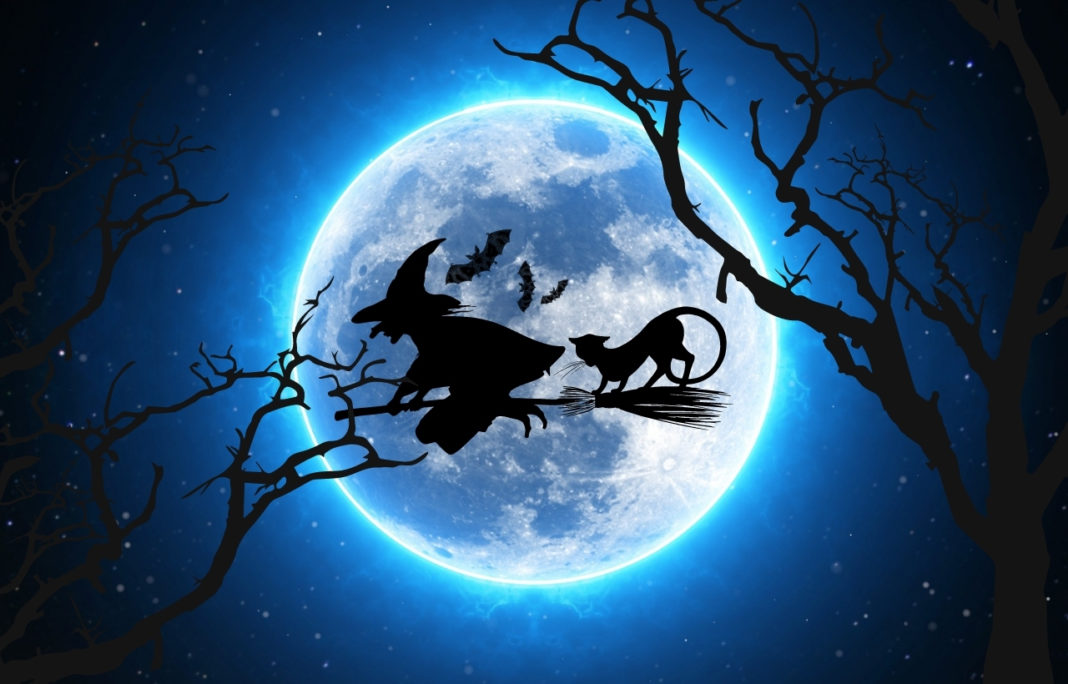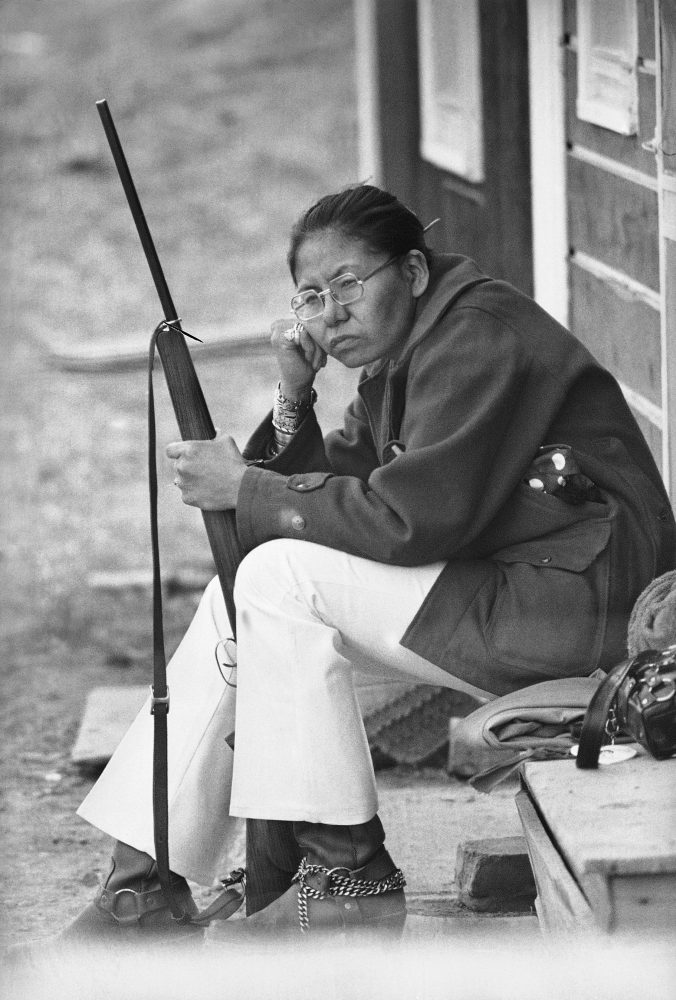An Interview with a Campfire
 •
by
•
by Pfenix Quinn
 The eRepublikan Workingpeeps’ Co-operative Publishing Society
The eRepublikan Workingpeeps’ Co-operative Publishing Society

As is my custom, on Samhain Eve afternoon I wandered into the woods surrounding the quaint little New England town where I live and breathe. Nodding my acquaintance to the friendly groups of covenners on their way to various rituals, I urged my faithful companion -- Olive, an ancient Blue Heeler -- to keep up the pace as I made my way deeper into the mangle of trees surrounding Arkham.
Past the Flax Pond, where a few brave late-season kayakers were padding around. I waved to my friend Jude, who shouted something about staying healthy.
Past the old cranberry bog, now slowly reverting to native brambles, where I saw what looked like a group of Unitarians getting ready to wrestle some Quakers. But mentally. You know? Yeah. New England on All Hallow's Eve. It's a little weird.
Then over the little wooden boardwalk that crosses over the salthy marshlands winding through the woodlands, where I saw a couple of Wampanoags with what looked from a distance like a gang of turkeys and maybe two coyotes walking along with them, like they were all on their way someplace important.
Up and down a few little hills, following the well-worn paths, then passing through a somewhat mysterious grove of enormously tall pines that are quite out of character for this region. Until I reached the small hilltop meadow I sought. It is one of those beautiful bucolic puzzlements that can almost startle you when wandering about in these parts. Ablaze with seasonal orange and yellow leaves, all outlined in green and decorated with red berries. And there, on the edge, sitting at small camp fire, he sat staring into the fire.
I padded up to him silently. He smiled.
"Nice to see you old friend," I said.
PQ stared at me with a far-away half-smile.
"I was hoping I could pick your brain about something this year."
He nodded towards the East North-East. I got it. I checked my watch. It was just after 2 PM. We had about 4 hours until moon-rise.
"Could you tell me something about the history of socialism and whatnot in North America?"
PQ smiled. I figured he'd like this topic. The old geezer always loved to talk. And since he'd passed to the other side, I imagined maybe he'd had fewer opportunities to do so.

"Sure," he said, He took in a deep breath and released a fog of crystalized particles that drifted up from his smile as he began to pontificate. "But I think I'd like to focus on some of the less-obvious stories if you don't mind..."
Native Influences
"As in many parts of the world, the native and indigenous people of North America practised social solidarity for the millenia preceding the fairly recent development of land 'ownership' that occurred with the development of various forms of feudalism. Likewise, the sharing of both resources and labor was a common practice long before the 'private property' was turned into something like a religion beginning around the late 1970s and early 1980s.
"Some interesting particulars to ponder include, first of all, the North American indigenous meta-culture that spread out of Mexico and Central America and had a great influence over much of the region. Tenochitlan was one of the largest cities in the world when it was "discovered" by Spaniards -- about the same size as Paris at the time. It was a place with many centuries of scientific agricultural experience, advanced astronomical observatories, and a highly developed system of rule of law.
"You see echoes and intimations of its influence in things like the friezes at the market in Chichen-Itza in Yucatan, which depicts interactions between the Panther (Maya), Eagle (Aztec) and Bear (North American) people. As well as in sites like Cahokia, near what is now St. Louis -- as well as in many other "mound" sites -- indicating that 'urban' levels of collaboration and co-operation were well underway in North America long before the wypipo showed up.
"Another interesting thing to take note of is the history and role of the Haudenousaunee Confederacy in North America. This is a federation of the Mohawk, Oneida, Onondaga, Cayuga, Seneca, Tuscarora, Wyendot, Delaware and Tutela people. It has existed for quite a long time and still exists today. There is strong evidence that Franklin and Jefferson were strongly influenced by what they learned about the Great Law of the Haudenousaunee. Franklin, in particular, was impressed by arguments made by Canassatego, Chief of the Onandaga, regarding the importance of and need to unify the English colonies if the settlers expected the confederacy to join with them against the French.
"Perhaps even more interesting for us was the Haudenousanee commitment to elimination of oppression and class. Similar themes that can be discerned -- albeit with much historical context needed -- in Jefferson's writings, which were very likely influenced in this regard by his renown for the Great Law.
The symbol of the Confederation is a bear.

"There is much more than can and should be said about the inter-relationship between indigenous people and modern socialism in the Americas.
In North America, the example of the Lakota people, in particular, in resisting colonialism and continuing to lead the struggle against capitalist and white supremacist shenanigans has been outstanding. We all remember names like Black Elk, Red Cloud, Crazy Horse and Sitting Bull. And fighters like Regina Brave still set an example for us all today.
"The Lakota tribes (also sometimes called the 'Teton Sioux') fought the longest, the hardest and in many ways have never surrendered.
The Lakota sense of extended family is called 'tiyospaye'. It embodies the idea that a person's acts should be measured in terms of its impact on the entire extended group, for the good of all. These kinds of princicples -- that we should strive to live in harmony, that having a sense of belonging to community is important, that interpersonal relations should be valued and that we need to be able to trust another, that generosity and cooperation are valuable qualities -- could not be any more important in today's world."

Regina Brave at Wounded Knee in 1973.

Regina Brave at Standing Rock in 2017.
Black Influences
"Alot of peole know about the Black Panter Party for Self-Defense. Some even recall that they were out-spoken communists and made no apologies for their great admiration for the Chinese Revolution, and that they supported the idea of a multi-national working class revolution. They were only really around for a few years before being decimated by police attacks.
"It was shocking to me, when I was existing on your plane, when I was only 13 years old, a little white not-yet-out-of-the-closet precoucious little pipsqueak from the suburbs, and I was dumbstruck, flabbergasted, mad when the cops assassinated Fred Hampton, chair of the Chicago Black Panthers, in his bed, along with his wife, DURING the trial of the Chicago Seven, when they had Bobby Seale there too, without representation, gagged and handcuffed in a courtroom. It made me want to be a Panther too.
"But there is so much more behind all that...
"You know. In his great work, 'Juneteenth', a novel he worked on for 45 years, as he tried to give voice to the true (North) American voice, the great writer Ralph Ellison tried to portray why it is so that, whatever else it means to be a 'true American', it absolutely, fundamentally, means to be 'somehow Black'.
"Due to the overwhelming influence of 'white', which is to say mainly European-settler culture and racism on so much of the cultural and political and so-called 'educational' mix in North America, especially in the USA, it is sometimes easy to miss the fact that much of the most unique, most amazing, most interesting parts of modern USAnian culture are, in fact, rooted in the African-American experience, and especially in the experience of enduring and resisting slavery.
"And aside from that, which maybe I'll come back to later, OK, but it has furthermore often amused me, in a very cynical way, how often so many Black and white Americans -- but especially the whites -- totally miss the fact that, from the perspective of folks outside of this country -- we are much more alike than we are different. I am thinking of our bizarre mash-ups of Protestantisms and naive certainties about God being on our side, of our love of gun culture, of our love for the songs and music of our people, of our almost bizarre level of attachments to the American land, despite our almost neurotic levels of rootlessness, of lacking any "historical" depth, you know?, and of our love for the music from the front-porch, as my Mom used to say, and so on and so forth.

"Anyway.
"With respect to the history of the workers movements, of socialist, communist, anarchist and anarcho-syndicalist organizations, as well as the non-revolutionary labor union movements, we can further observe that they have always been the most successful and achieved the greatest gains when they put aside racism and, especially, when they have been led by Black voices.
"I think probably the Communist Party of Alabama in the 1930s and 1940s was the biggest chapter of that organization in its heyday. It was almost entirely Black and 100% Christian as well. Meetings opened with prayer. Rosa Parks' husband was a member. You know she was raised by her grandfather, who sat up every night in a rocking chair with a shotgun in case the Klan came knocking? And that she was a longtime organizer against rape and disappearance, and that she was the one who recruited MLK to lead the bus boycott movement? And that when she had to flee to Detroit due to death threats, she was a vocal supporter of the Black Panthers and the Republik of New Afrika?
"I have to laugh when I think how she still gets portrayed as this meek, submissive woman who just accidentally started a great movement one day... oh, because she was tired."

Robert and Mabel Williams meeting with Mao Zedong in 1968, just before the W.E.B DuBois Seminar

W.E.B DuBois meeting Mao Zedong in 1959
The mists were beginning to rise from the marshlands, along with the smoke from the ritual fires, here and there, scattered among the trees.
PQ, already starting to fade away, was staring off into the sky, like he was searching, waiting for the blue moon. Or something.
I just quietly stood, nodded to Olive, and we started our way back to town.
Upon returning home, I am remembering the ancestors -- all of them. Putting out some flowers and warm bread. And thinking, to all those fascists who are bound to lose, see you next Tuesday.
Looking for an interesting alternative? Fix your gaze on the SFP!
The Revolution Needs You!!
Take a deep breath, dive into the heart of darkness, and join up today, conrads!!
https://www.erepublik.com/en/party/socialist-freedom-party-3653/1


Comments
https://youtu.be/dWUa7aAIfLE
Total respect for Regina Brave!
Always a savory treat
youtu.be/Dk6Y9uIwiMI
o7
Excellent read.
Very educational, thank you for this. Much better than the rest of the crap that pollutes the media module these days
o7
Super interesting read!